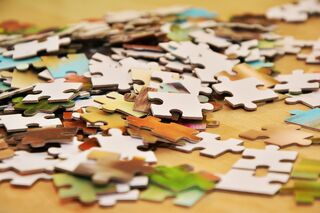Memory
Wish You Had a Memory Like an Elephant?
A new book may help you relax about forgetting.
Posted August 2, 2021 Reviewed by Davia Sills
Key points
- Neuroscience helps us understand memory and how it works.
- Forgetting names, dates, and events is usually normal, but certain hints can help us remember.
- For instance, reducing distractions can help improve memory.
Quick quiz:
1. Have you ever forgotten why you entered a room?
2. Do you forget special dates—anniversaries, birthdays, or big family meetings?
3. Do you ever forget to tell your friend about something you know she’d like to hear about?
4. Have you ever forgotten an appointment?
5. Have you ever decided to do something and then forgotten what it was moments later?
When these things happen, do you then start to worry that you’re losing your memory or worse?

Relax.
Lisa Genova’s new book Remember: The Science of Memory and the Art of Forgetting is here to help. Genova uses neuroscience to explain what memory is, how it works, and how normal changes over time are, well, normal. She has lots of great points, but some that calmed me down included the idea of “working memory,” sleep, and relaxing when you forget something.
Short-term memory
When we hear or read something, it goes into a short-term memory holding bank and stays for less than 30 seconds. So if we want to remember it, we’ve got to be sure it gets into a place where it can be retrieved.
This explains why I have such trouble remembering names. I hear them and then move toward a conversation instead of taking the extra time to cement the name in my longer-term memory. If I want to keep it, I focus, repeat it, use it, and attach it to the person.

It’s like finding a puzzle piece and then setting it aside versus finding the spot to put it where it will make sense going forward. Only then will I have a chance of finding it to use later. So lesson one: Pay attention and then use and place the information where I can retrieve it.
Sleep
Next comes sleep as a way to help retain information. I know this works. When I was in grad school, I studied intensive Japanese for six weeks. Every night, I memorized a short dialogue between two people:
“Hello Sam-san, where do you live?”
“I live on Watanabe Street, near the bank.”
“Ah so. And I live in an apartment next to the elevator in this building.”
“So good to know that. I will visit you tomorrow.”
The dialogues were always short, with several Japanese words that could be used over and over. Right before going to sleep, I went through that dialogue a few times. And boom. The next morning, it was in my head.
Relax
Last, Genova urges us to relax when we have that experience of forgetting something on the “tip of your tongue.” It happens at every age and, normally, is nothing to worry about. The person’s name or place or book title will come to you at some point. Notice this the next time it happens. How long before the word returns? Usually not more than a few minutes.
I now say that “Joe took it” when I forget something and that “Joe will bring it back.” Once I quit fretting, Joe does bring back the forgotten word, even though it may be in the middle of the night.
References
Genova, Lisa. 2021. Remember: The Science of Memory and the Art of Forgetting. New York: Harmony.


